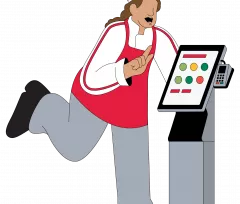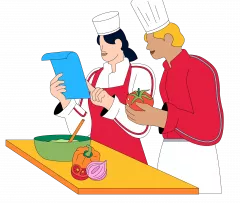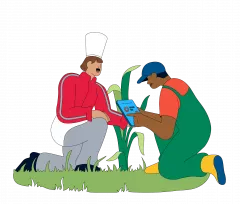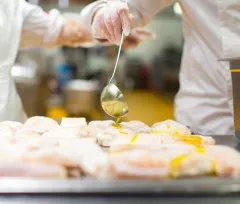As a caterer, the fight against food waste is a major challenge for Elior, which seeks to reduce it at all stages of its value chain: in its supply chain, in its kitchens and in its restaurants.
An ambitious waste reduction target
To formalize its commitment to the fight against food waste, Elior Group updated its anti-food waste charter in 2021 and set itself the objective to reduce food waste in its restaurants by 30%, on average, by 2025. This ambition is perfectly in line with the Group's objective to reduce its greenhouse gas emissions.
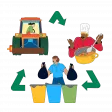
30%
Targeting a 30% reduction in food waste by 2025
Our anti-waste charter
Five levers to limit this waste
To attain this objective, the Group has implemented a five-pronged action plan that respects the specific characteristics of each country where Elior is present, and provides innovative solutions for all stakeholders: teams, customers and guests.
Our key figure

85.3%
of our sites have waste contracts that include sorting bio-waste
